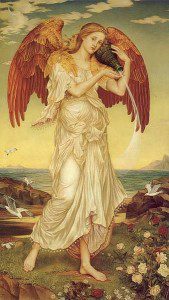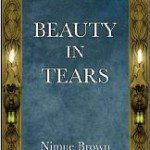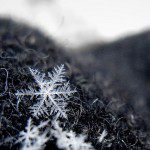 Having gone through a number of verses from the “Invocation of the Graces” line by line, I would now like to present a new translation of those same verses that incorporates some of the connotations Carmichael left out of his translation. The extent to which Carmichael contributed his own material to the original folklore cannot be known — some people think he might have added a line or two, while others think he pretty much wrote the “Invocation” himself — so I’m giving my translation a new title to emphasize the fact that any translation is essentially an original work.
Having gone through a number of verses from the “Invocation of the Graces” line by line, I would now like to present a new translation of those same verses that incorporates some of the connotations Carmichael left out of his translation. The extent to which Carmichael contributed his own material to the original folklore cannot be known — some people think he might have added a line or two, while others think he pretty much wrote the “Invocation” himself — so I’m giving my translation a new title to emphasize the fact that any translation is essentially an original work.
Translating buaidh as “graces” emphasizes the Victorian ideal of femininity. That emphasis is much less present in the Gaelic version, which still comes across as feminine but in a much less Victorian way. The word is more accurately translated as “power” or “virtue,” but with a root meaning of “victory.” Throughout my version of the charm, I translate buaidh as virtue, victory or power. All verses except the last verse are from Carmina Gadelica #3; the final verse is from Carmina Gadelica #278, which is another version of the same charm.
I have kept Carmichael’s use of “thee” and “thine” because it reflects the Gaelic distinction between tu and sibh. “You” or “sibh” is plural or formal, while “thee” or “tu” is singular or informal. Prayers traditionally use “thee” not to sound pseudo-archaic but to emphasize intimacy with the divine.
Song of the Virtues
I bathe thy palms
In showers of wine,
In the fiery water,
In the seven elements,
In the juice of berries,
In the honey milk,
And I place the nine pure choice virtues
In thy fair fond face:Virtue of form,
Virtue of voice,
Virtue of fortune,
Virtue of goodness,
Virtue of wisdom,
Victory over poverty,
Virtue of choice womanhood,
Virtue of true beauty,
Virtue of good speech.Dark is yonder town,
Dark are those therein,
Thou art the brown swan,
Going in among them.
Their hearts are under thy control,
Their tongues are beneath thy sole,
Nor will they ever utter a word
To give thee offense.A shade art thou in the heat,
A shelter art thou in the cold,
Eyes art thou to the blind,
A staff art thou to the pilgrim,
An island art thou at sea,
A fortress art thou on land,
A well art thou in the desert,
Health art thou to the ailing.Thine is the enchantment of the woman of the otherworld,
Thine is the virtue of Bride the calm,
Thine is the faith of Mary the mild,
Thine is the deed of the woman of Greece,
Thine is the elegance of Emir the lovely,
Thine is the character of Dearshul delightful,
Thine is the boldness of Maebh the strong,
Thine is the charm of the Melodious Mouth.Thou art the joy of all joyous things,
Thou art the light of the beam of the sun,
Thou art the door of the chief of hospitality,
Thou art the surpassing star of guidance,
Thou art the step of the deer of the hill,
Thou art the step of the steed of the battlefield,
Thou art the virtue of the swan of swimming,
Thou art the little jewel of the mystery of love.Power of the mystery of the skies be thine,
Power of the mystery of the stars be thine,
Power of the mystery of the moon be thine,
Power of the mystery of the sun be thine.
Loop of Brighid is published on alternate Thursdays. Follow it via RSS or e-mail!

















